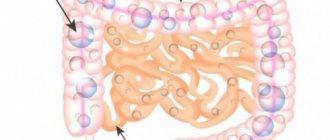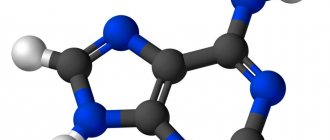Composition per tablet:
Active substance:
methionine - 250.0 mg
Excipients:
potato starch - 44.0 mg, methylcellulose - 3.0 mg, stearic acid - 3.0 mg
Excipients of the coating to obtain a tablet with a coating weighing 400.0 mg:
sucrose (sugar) - 62.486 mg, wheat flour - 18.556 mg, magnesium carbonate (light) - 18.264 mg, talc - 0.496 mg, refined sunflower oil - 0.097 mg, beeswax - 0.097 mg, azorubine dye - 0.004 mg.
How to recognize methionine deficiency in the body
Excessive hair loss, dull skin color, fatigue, increased toxicity of metabolic products, liver failure, neural tube defects in pregnant women - all these symptoms may indicate a lack of amino acids in the body.
This is primarily associated with insufficient protein intake. And, of course, vegans are at risk. However, the opposite situation may also occur, when too much methionine accumulates. Moreover, sometimes it is observed in adherents of a plant-based diet. In this case, the following symptoms may appear: ● nausea and irritation of the gastrointestinal tract; ● lack of coordination; ● anorexia; ● decrease in growth; ● hyperactivity; ● hemosiderosis; ● reduced volume of red blood cells; ● periodic hallucinations.
Description
Round, biconvex tablets, coated with a pink film with inconspicuous inclusions. The cross section shows two layers with a noticeable boundary between them.
Pharmacotherapeutic group:
metabolic agent.
ATX code:
A05VA
Pharmacological properties
An essential amino acid, a donor of mobile methyl groups for the synthesis of choline and phospholipids, the implementation of a lipotropic effect. Participates in the synthesis of adrenaline, proteins, remethylation reactions, deamination, decarboxylation, etc. Participates in the metabolism of sulfur-containing amino acids, adrenaline, creatinine, cyanocobalamin, ascorbic and folic acids, hormones, enzymes. Has a detoxifying effect. Has a metabolic, hepatoprotective effect. Easily absorbed in the intestines, excreted in urine in small quantities.
Methionine 50 film-coated tablets
Methionine
Registration number: LP-002011
Trade name: Methionine
International nonproprietary name: Methionine
Dosage form: film-coated tablets.
Composition per tablet: methionine - 0.25 g. Core excipients: potato starch - 0.0382 g, stearic acid - 0.003 g, methylcellulose - 0.0034 g. Shell excipients: sucrose (sugar) - 0. 0826683 g, wheat flour - 0.00371 g, magnesium hydroxycarbonate (basic magnesium carbonate) - 0.010684 g, talc - 0.001789 g, low molecular weight povidone - 0.001088 g, azorubine dye (acid red 2C for pharmaceutical purposes) - 0.0000087 g, liquid paraffin (vaseline oil) - 0.000026 g, beeswax - 0.000026 g.
Description: Round, biconvex tablets, pink coated. Marbling is allowed. On a cross section, two layers are visible, the inner one is white.
Pharmacotherapeutic group: metabolic agent.
ATX code: [A05BA]
Pharmacological properties: Pharmacological action. Has a metabolic, hepatoprotective effect. An essential amino acid, a donor of mobile methyl groups, is necessary for the synthesis of choline, the deficiency of which is associated with impaired synthesis of phospholipids from fats and deposition of neutral fat in the liver. Participates in the metabolism of sulfur-containing amino acids, in the synthesis of epinephrine, creatinine and other biologically important compounds, activates the action of hormones, vitamins (B12, ascorbic, folic acids), enzymes, proteins, remethylation reactions, deamination, decarboxylation and others. Essential for detoxification of xenobiotics. In atherosclerosis, it reduces the concentration of cholesterol and increases the concentration of blood phospholipids. Pharmacokinetics. Easily absorbed from the intestines. It is excreted in urine in small quantities.
Indications for use: As part of complex therapy of liver diseases occurring with fatty infiltration of hepatocytes: toxic hepatitis, hepatosis (including alcoholic), cirrhosis, liver dystrophy; intoxication. Prevention of toxic liver damage from arsenic, chloroform, benzene, alcohol. As part of combination therapy: protein deficiency of various origins, atherosclerosis, diabetes mellitus.
Contraindications: Hypersensitivity, severe liver failure, hepatic encephalopathy, viral hepatitis, hereditary fructose intolerance, glucose-galactose malabsorption or sucrose-isomaltose deficiency, children under 6 years of age.
With caution: Renal failure (risk of increased hyperazotemia). Before use, consult a doctor.
Directions for use and dosage: Orally, 1/2 - 1 hour before meals, 3-4 times a day. Adults - 0.5-1.5 g. Children: from 6 years and older, 250 - 500 mg. Maximum single dose: adults – 1500 mg (6 tablets), children aged 6 years and older – 500 mg (2 tablets). Maximum daily dose: adults - 6 g (24 tablets), children aged 6 years and older - 2 g (8 tablets). Course - daily for 10 - 30 days or 3 courses of 10 days with 10-day breaks.
Side effects: Allergic reactions, nausea, vomiting (due to unpleasant odor and taste).
Overdose: Symptoms: decreased blood pressure, tachycardia, disorientation. Treatment: symptomatic.
Special instructions: Should be prescribed in balance with other amino acids. Unbalanced use of methionine in large doses can have a damaging effect on the cells of the liver and other organs.
Interaction with other drugs: When used simultaneously with levodopa, its effectiveness decreases.
Use during pregnancy and breastfeeding: When prescribing the drug, the dosage must be strictly observed. During breastfeeding, you should refrain from using the drug, as there is no more precise data.
Effect on the ability to drive vehicles and machinery: If the dosage regimen is followed, it does not affect the ability to drive vehicles or engage in potentially hazardous activities that require increased concentration and speed of psychomotor reactions.
Release form: Film-coated tablets, 250 mg. 10 tablets in a blister pack made of polyvinyl chloride film and aluminum foil. 50 tablets per jar made of polymer materials. Each jar or 5 blister packs along with instructions for use are placed in a cardboard pack for consumer packaging.
Best before date
5 years. Do not use after the expiration date.
Storage conditions
In a dry place, protected from light, at a temperature not exceeding 25 ° C. Keep out of the reach of children.
Vacation conditions
Available without a prescription.
Methionine tablets p/o 250 mg No. 10x5
Name
Methionine tablets of 250 mg per blister pack No. 10x5
Description
Round tablets with a biconvex surface, coated, pink. Blotches are allowed on the surface of the tablets.
Main active ingredient
D,L-methionine
Dosage
250mg
Compound
1 tablet contains D,L-methionine 250 mg; excipients: potato starch, anhydrous colloidal silicon dioxide, calcium stearate, polysorbate; shell: sugar, light magnesium carbonate, povidone, anhydrous colloidal silicon dioxide, talc, titanium dioxide (E 171), Ponceau 4R dye (E 124), yellow wax, light mineral oil.
Pharmacological properties
Methionine is an essential amino acid that is involved in remethylation processes. Chemically, methionine is converted to cysteine, a precursor to glutathione, which is involved in detoxification reactions. Has a lipotropic effect, promotes the synthesis of choline and phospholipids; participates in the synthesis of adrenaline and creatine; activates the action of hormones, vitamins, enzymes. It has detoxifying properties due to the ability to methylate toxic products. Reduces the concentration of cholesterol in the blood and increases the content of phospholipids. Easily absorbed from the intestines. As an essential sulfur-containing amino acid, it is used for protein synthesis and enters into various metabolic reactions - remethylation, deamination, decarboxylation. Excreted in urine in small quantities.
Indications
Treatment (as part of complex therapy) of diseases and toxic lesions of the liver: toxic hepatitis, alcoholic hepatopathy, liver cirrhosis, poisoning with paracetamol and other hepatotoxic drugs.
Contraindications
The drug should not be used:
- in case of hypersensitivity to the active substance or to any other component of the drug;
- with homocystinuria;
- for urate and cystine stones;
- with renal failure;
- with oxalosis;
- with methionine adenosyltransferase deficiency;
- with metabolic (eg, renal tubular) acidosis;
- babies.
Due to the risk of synthesis of neurotoxic mercaptans by bacterial metabolism, patients with liver failure or hepatic encephalopathy should not use methionine.
Cautions for use
Before using the drug, consult your doctor! Do not use the drug for longer than the specified time without consulting a doctor! If there is a deficiency of folic acid, vitamins B2, B6 and/or B12, treatment with methionine may lead to increased homocysteine levels. Hyperhomocysteinemia can be considered as an independent risk factor for atherosclerosis. With long-term use of the drug, it is necessary to follow a diet containing a sufficient amount of folic acid and B vitamins. If necessary, their deficiency should be compensated. In hyperthyroidism, the metabolism of homocysteine in the blood plasma may be accelerated, so thyroid function should be checked before starting methionine treatment. Taking methionine may lead to an increase in calcium excretion in the urine (hypercalciuria). In case of long-term treatment with methionine, it is necessary to regularly monitor mineral metabolism. In patients at risk of developing acidosis, long-term treatment with methionine should be carried out under the control of acid-base balance in the blood.
Interaction with other drugs
If you are using any other medications, be sure to consult your doctor about the possibility of taking the drug! The effect of some substances (for example, ampicillin, carbenicillin, sulfonamides, nitrofurantoin, nalidixic acid) may be enhanced due to prolonged plasma half-life. Coadministration of levodopa and methionine may reduce the effectiveness of levodopa in patients with Parkinson's disease, so increasing the dose of methionine should be avoided in such patients.
special instructions
Children. The drug should not be used in children under 12 years of age, as there is no data on adequate studies in this category of patients.
Use during pregnancy and lactation
There is no sufficient data on the use of methionine during pregnancy and lactation. Animal studies do not indicate direct or indirect harmful effects of methionine on pregnancy or embryonic development. During pregnancy or breastfeeding, the use of the drug is possible if the benefit to the mother outweighs the potential risk to the fetus/child.
The ability to influence the reaction rate when driving vehicles or other mechanisms
No data available.
Directions for use and doses
Adults are prescribed 500-1500 mg 3-4 times a day. Children single doses: 3-6 years – 250 mg, 7 years and older – 500 mg. The frequency of administration is 3-4 times a day. The drug should be taken 30 minutes - 1 hour before meals. The course of treatment is 10-30 days or 10 days each with 10-day breaks between these courses. In case of paracetamol poisoning, the following dosage is recommended: 2500 mg every 4 hours until a dosage of 10,000 mg is reached.
Overdose
Cases of acute intoxication have not been described. With prolonged overdose (about 15 g/day), atrophy of secreting organs, such as the parotid, submandibular and sublingual glands, is possible.
Side effects
A change in blood pH to the acidic side in patients at risk of developing acidosis. Nausea, vomiting, diarrhea, drowsiness, and irritability may occur. If undesirable effects occur, consult your doctor regarding further use of the drug. The drug should not be used after the expiration date.
Storage conditions
Store in original packaging at a temperature not exceeding 25 °C. Keep out of the reach of children!
Buy Methionine tablet p/o 250 mg in blister pack No. 10x5 in the pharmacy
Price for Methionine tablet p/o 250 mg in sheets in pack No. 10x5
Instructions for use for Methionine tablet p/o 250 mg in blister pack No. 10x5
Vegan Sources of Methionine
Even as a vegan, you can easily eat your daily requirement of the amino acid.
It is found in many plant products: ● Millet, oats, buckwheat, rice, semolina, corn, quinoa; ● Beans, chickpeas, soybeans, lentils, peas, peanuts; ● Spinach and broccoli; ● Chia, sunflower, hemp, pumpkin, sesame seeds; ● Brazil nuts, hazelnuts, almonds, cashews, pistachios, pine nuts and walnuts.
But remember that nutrients are not evenly distributed across foods. For example, rice is high in methionine but very low in lysine. This is also an essential amino acid that is important for the body. Lysine is found in large quantities in nuts, legumes and corn. This means that the daily diet should include both. Only a competent combination of various food products can completely balance proteins, fats, carbohydrates, amino acids, vitamins and microelements in a vegan’s daily menu.
And in order to balance the taste, and at the same time diversify your plant-based diet, try our products: Naema chocolate-nut spread, cereal desserts with berries and baked apple, vegan chocolate with cashews on coconut sugar, Coconut-Peanut caramel , oat milk or oat drinks with coconut and chocolate.








